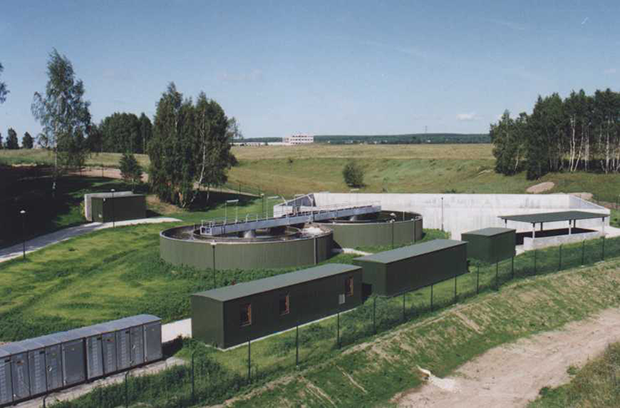The treatment of sewage is an expensive and a difficult task to do in the developing countries. All around the world, many researchers from various developing countries are working with the best of their knowledge to innovate systems that could be employed in these parts of the world. Sewage treatment is termed for the waste-water cleaning process.

In this process, the wastewater from household waste, industrial, commercial and other sources is treated and contaminants are removed from the water. There are various advanced technologies, studied and implemented under training that are implied in the treatment of the sewage and produce output results that can be re-used in other tasks.
Role of Germany
Taking the data of around a decade in the past from now, it is found that Germany has put forth a lot of investment in devising sewage systems at domestic level. Apart from implementing sewage systems in the country itself, Germany has also started the export of various sewage treatment technologies. A latest European Commission based study has revealed that the Germany has become the top EU exporter of the water treatment technologies.
Another report from the Engineering Federation of Germany has revealed the stats that the stats of the export for the year 2011. It says that the total export has been accounted for around 800 million Euros, which is a total of 33% of the total export from the European Union market. The technology has been mostly based on the climatic conditions and the quality of water of the nation that would make it a difficult task to use these techniques in some other conditions.
A professor of a technological, institute in Germany, Harald Horn states that the main issue is not of the quality or conditions, the technologies may work, but the cost might become unbearable for many nations.
Improving Techniques
Modern technological innovations have been developed at almost the end of the 20th century, in which Horn along with his team is working for the improvement of these technologies for a less costly and highly effective technique development. One of his students, Eva Gilbert, is working on the technologies with an aim to develop a system that would be easily adaptable to different climates, would cost less than the present technologies and also she aims to try to make them more efficient than ever. Another point Horn states is that most developing countries don’t have any sewage system to start the work of improvement with.
The Need of New Technologies for Developing Countries
The major challenge faced by the developing countries is the lack of money for investment to such types of technologies. From 1997, the portion of aid that is provided for the improvement to the treatment of wastewater and employment of new technologies for sewage systems has been reduced to 5% from the 8% value that was dedicated earlier. With the increase in the urbanization of the developing nations, a lack of a good quality sewage system poses many serious threats to the health of the general public and also is a great threat to the environment of the nation. Many people visit Germany to study the technologies used there, where a continuous research will help in easy access of such technologies around the world.
Claudia writes very well furnished articles on various topics, which are rated very well on most of the websites. In this article by her based on Software Training Programs, she has provided valuable information about water treatment technologies, challenges faced and future prospects, follow me @ITdominus1.
Germany Leads The Way In Waste Water Technology,





Wastewater
Apr 08. 2014
Yes, It’s not an easy task to do treatment of wastewate means water of sewage. It is very necessary that you should have a well researched plan for wastewater treatment. There are various companies who are researching in the field but not getting better plans. For this it’s necessary that you should have Waste water treatment plant in the developing countries to make water water to be reused for some other purpose. Thanks for sharing.
Gerald
Jun 26. 2014
The wastewater from household waste, industrial, commercial and other sources is treated and contaminants are removed from the water.. I’d like to say thanks for your informative post and keep sharing such a nice and useful posts.